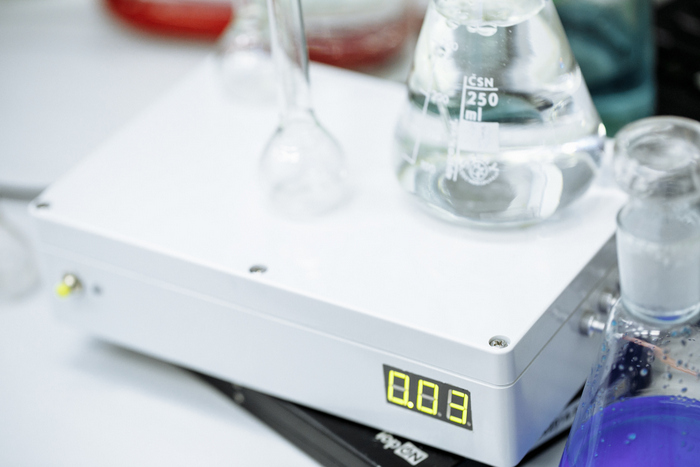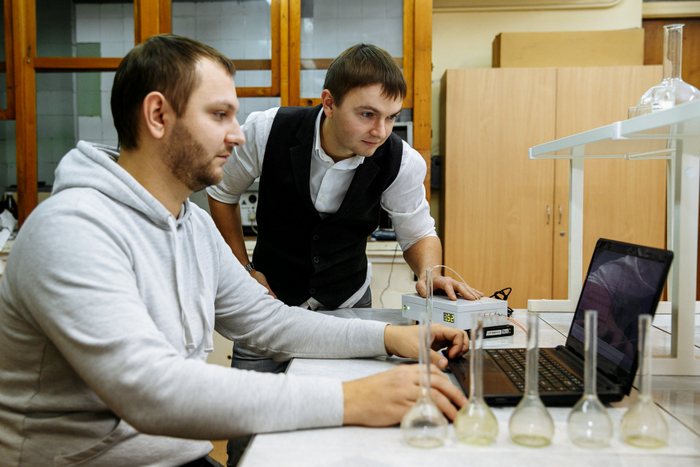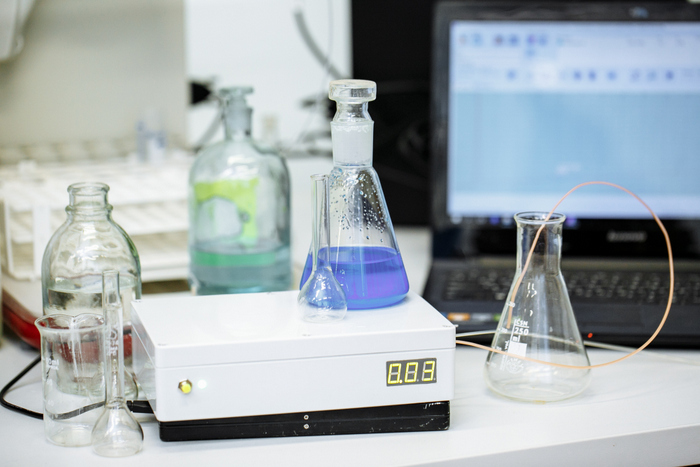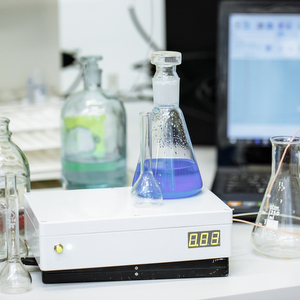Scientists at Samara University have created a device for the hyper-fast analysis of substance composition. Even in field conditions, the portable gas-based micro-chromatograph is able in mere minutes to yield precise data on the composition of the atmosphere, the quality and quantity of the composition of oil and gas, or to analyze the biomarkers in human exhalation.
Gas-based chromatography is one of the most popular methods in the world for the chemical analysis of the substances contained in the soil, water and air. That said, standard analysis on the gas-based chromatographs currently in use can take more than an hour, while the devices themselves tend to be bulky and tailored for use in the standard conditions found at industrial enterprises.
Gas-based chromatography is one of the most popular methods in the world for the chemical analysis of the substances contained in the soil, water and air. That said, standard analysis on the gas-based chromatographs currently in use can take more than an hour, while the devices themselves tend to be bulky and tailored for use in the standard conditions found at industrial enterprises.

The micro-chromatograph created by scientists at Samara University is capable of conducting a qualitative analysis of substances within mere minutes. Moreover, it’s mobile and portable – smaller and lighter than a laptop, making it suitable for use in field conditions. Wi-Fi connection with the micro-gas-chromatograph makes it possible to engage distance analysis and remote control of the device. Developers were able to achieve such impressive results thanks to the creation at Samara University of unique chromatographical modules (dosimeters, detectors, chromatographic columns), executed on the surface of planes made of different materials.
“The microfluidic systems serving as the basis for the creation of our device analyze complex compounds in chromatographical micro-channels, dispersed throughout the surface. This is precisely why our analysis is conducted in dynamic conditions,” said Professor Igor Platonov, Head of the Chemistry Department at Samara University, in substantiating the particulars of gas-based chromatographical analysis via the new device.


Taking part in the creation of a working prototype of the micro-chromatograph were more than seven departments at Samara University. The device has passed the full cycle of required tests; it has been patented, has been certified at VNIIM Mendeleev, and has been cleared for pilot-industrial production at Samara University. In terms of foreign-source components, only microcircuits and gas-based micro-channels are being used. All of the rest, including software and the necessary hardware, is fabricated through the resources of the university itself. That said, the cost of the new analyzer turns out to be less than half that of analogous stationary chromatographs.
The micro-chromatograph developed by Samara University has already proven itself in differentiated ecological monitoring, including in areas of the location of potentially-hazardous industrial facilities, under the tactical analysis of the qualitative and quantitative composition of oil and gas at petrochemical enterprises (directly determining the value of their products) and even under the performance of archaeological surveys.


The new advancement by the university’s scientists has even piqued the interest of their foreign colleagues. Researchers from the Carl von Ossietzky University of Oldenburg (Germany), under the guidance of Professor Frank Ressner, for instance, are busy developing catalyzers for the refining of petroleum products into motor fuel. The hybrid micro-fluid technology of gas analysis, developed at Samara University, should help German chemists to make significant progress in this area.
“We’re very interested in the use of micro-chromatographs in my research on the creation of catalyzers. We need hyper-fast analysis with a high degree of sensitivity and reliability. With the aid of this device, we’ll be able to quickly gain an evaluation of data on a whole range of catalyzers both pre- and post- reaction, determine the lifespan of catalyzers, and achieve an increase in the output of target, prime-focus projects,” noted Professor Ressner during his visit to Samara University.
The catalyzers being developed at Oldenburg University are intended for the creation of cutting-edge fuels and motor oils compliant with increasingly-stringent environmental norms. The micro-chromatograph developed at Samara University under the guidance of Professor Igor Platonov is capable of helping German chemists to quickly and precisely determine the gaseous composition of compounds, both before and after catalytic reaction.
 RU
RU  EN
EN  CN
CN  ES
ES 